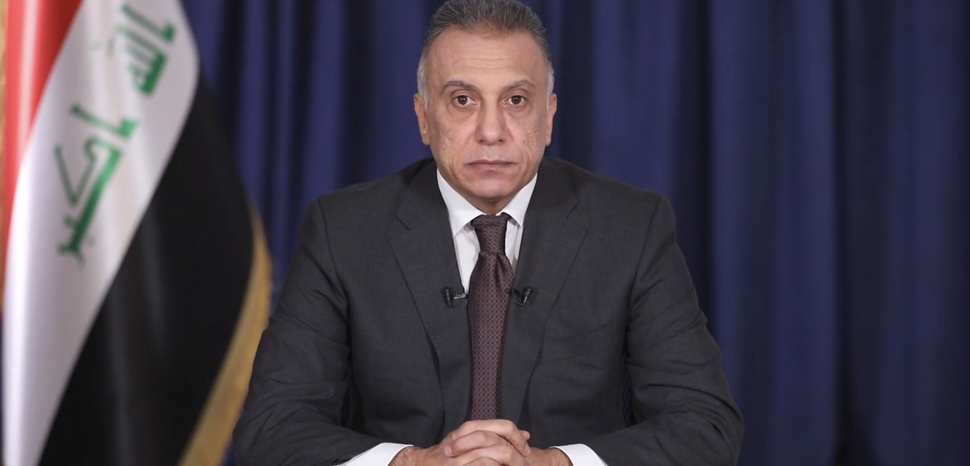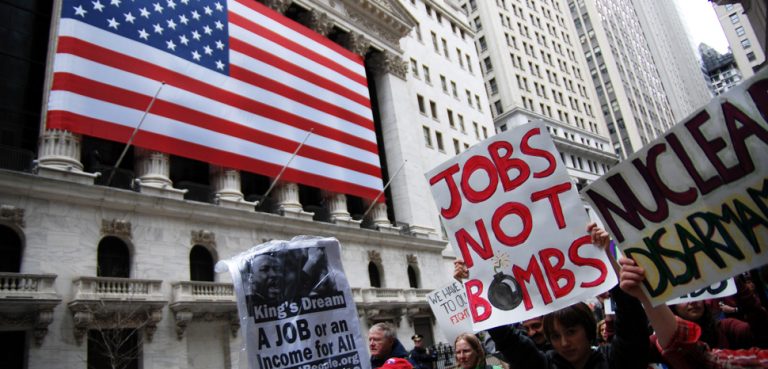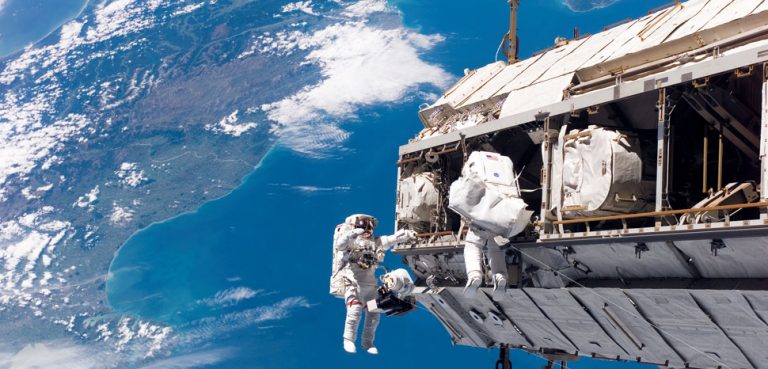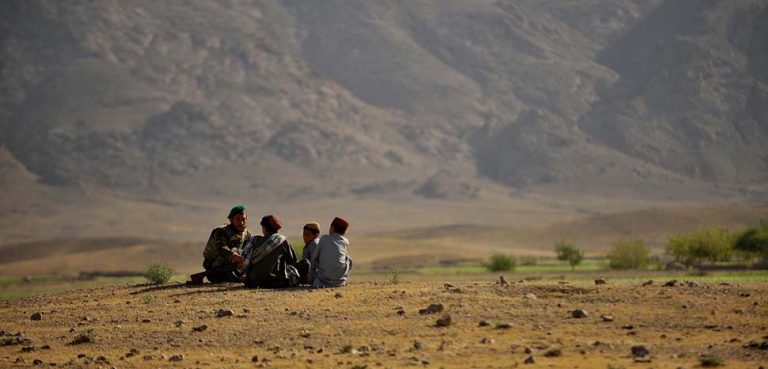On June 26, 2020, Iraqi Prime Minister Mostafa al-Kadhimi, demanded that counter-terrorism forces deploy to the outskirts of Baghdad in order to arrest individuals working with Kataib Hezbollah (KH), one of the factions operating under the umbrella of the Popular Mobilization Units (PMU), under the pretext of protecting Iraq’s national security.
While some observers deemed the decision as an irrational adventure, others saw it as a significant step to entrench the notion of the state and to determine the nature of the relations between various actors affecting its functional structure. this article will attempt to shed some light on the consequences of al-Kadhimi’s move, and its futuristic implications.
The first point we can mention in this regard relates to the huge public information capacity of Kataib Hezbollah. Using this capacity, the group managed to create a fabricated story regarding the event and guide public opinion using information offered up on social media. Conversely, the governmental side was not well prepared to deal with the possible implications of this information campaign, which placed al-Kadhimi in a compromised position.
The second point affirms that that critical moment was witnessing some very dangerous signs. Many of Kataib Hezbollah’s leaders admitted they encouraged their followers to raid the Green Zone (GZ), the place where the most important governmental headquarters are located. They managed to take control of the Green Zone’s key entrances, putting the government under real siege. Such a course of action closely resembles various military coups that have taken place in Iraq in the past. This time, however, a coup did not become reality. The PMU issued its directions for KH’s fighters to withdraw, thus ending the tension.
The third point is the need to question the tale of liberating the Green Zone. Different officials belonging to KH tweeted and noted that another special force came to do that job. That force also belongs to KH, which in turn exposes the complicated military structure of the group. Furthermore, it assures that the government does not have any ability to contain such actions or curb their effect. Therefore, Prime Minister Mostafa al-Kadhimi must have been aware of the dangers of his decision before going forward with it.
In Iraq, it seems that we need more focus on how the relations between al-Kadhimi and Kataib Hezbollah ‘s leaders will evolve. Interestingly, the militia no longer deals with him as a prime minister, nor do they hesitate to use insulting words against him. For example, they affirmed that they forced him to free their detainees and provide guarantees that he would never target them again. These tweets prove that they have since started to consider him an enemy.
To back up their rhetoric of confrontation against the state, KH also released some degrading pictures of detainees celebrating their release and stepping on pictures of Prime Minister Mostafa al-Kadhimi. Such a scene, as expected, sends contradictory messages that will severely restrain the symbolic power of government institutions. It will also mobilize people negatively against the law. It forms a direct challenge to the security decisions taken by the prime minister. In this same context, a widespread campaign has been launched targeting the writers and commentators who supported the prime minister’s operation, branding them as clients of the US in Iraq.
It seems there is a political and military confrontation that will take place between the prime minister and Kataib Hezbollah. PMU administrators believe that the government wants to target their military capabilities. This will be an existential threat to their future. Hence, PMU leaders have many times warned the prime minister about the risks of coming after them.
In doing so, they ignore the fact that Prime Minister al-Kadhimi himself has said that he would not target the PMUs. Rather, he intends to crack down on other groups which are accused of engaging in illegal activities, exploiting the name of the PMUs, and putting Iraq’s future at risk. The prime minister was attempting to send a clear message when he declared: “[I] can distinguish between these factions… The government will only respect and protect those who are working under its rules and laws”
The discourse of conflict has become clear in the statements of some parties. KH has declared that it will not hand its guns over to the government under any circumstances. This is a real challenge to the Iraqi state and its sovereignty, and it suggests that a ‘hot’ conflict could break out between KH and the state authorities in the coming months.
Kataib Hezbollah has started to look at some governmental institutions as competitors that must not be allowed to play a vital role in Iraqi society. The group has declared that the Counter-Terrorism Force (CTF) is a tool in the hands of the prime minister, who is viewed by KH as an agent of the United States. Kataib Hezbollah has stressed that Prime Minister al-Kadhimi and the CTF are setting the stage for a major push to undermine the PMU. This might lead to a volatile military clash between the two sides.
In the last days, there has been an extensive talk about Shiite division toward the state and its philosophy. There are two opposing views on this matter. The first one is represented by the attitude of Syaid Ali al-Sistani, who has consistently urged people to respect and obey the state and its law so long as it is fair. Then there’s the second position, which is advocated by those who want to create a more radical state. Some writers believe that Kataib Hezbollah is positioning itself to be the patron of this second model. If so, the result will be to place the prime minister in an untenable position and undermine the dream of many Iraqis for a stable and healthy state.
Kataib Hezbollah still reiterates that Prime Minister al-Kadhimi cooperated with others, especially the United States, in the assassination of Maj. Gen. Qassim Suleimani and Abu Mahdi al-Muhandis. Therefore, it is likely that KH will consider any decision taken by the prime minister against its interests as a part of a broader conspiracy to end its presence in Iraq. Kataib Hezbollah will count on this troubled relationship to agitate people against the prime minister. In the months ahead, KH might think of exploiting this matter to enhance its role politically, socially, and electorally.
Though it’s difficult to foresee effective mechanisms for settling these problems between KH and the government, it is clear that there are some efforts now being made to put an end to this confrontation. Thus, the prime minister must be careful from here on out. He must announce his convictions regarding how to solve this problem and how to consolidate the role of the state. He must convince public opinion that the institution of the PMU will obey the Iraqi state’s commands. In return, Kataib Hezbollah must help him to achieve his vision for Iraq’s national security, which of course includes not targeting foreign missions with Katyusha rockets.
We must produce an approach that can help the Iraqi state in its endeavors. We, as Iraqis, dread that such confrontations might lead to more regional polarization on the ground. We realize that civil war might return to Iraq’s cities. Hence, all actors participating in the new Iraqi political system must forego the politics of violence and counter-violence. The sacrifices of our nation in the sacred struggle it waged against Da’ish must be preserved. This cannot be reached without buttressing the state and its reforms to be practically engaged in the international order. Without meeting these conditions, the state will be in the wind, and extensive social chaos will reign.
The views expressed in this article belong to the author alone and do not necessarily reflect those of Geopoliticalmonitor.com or any institutions with which the author is associated.




